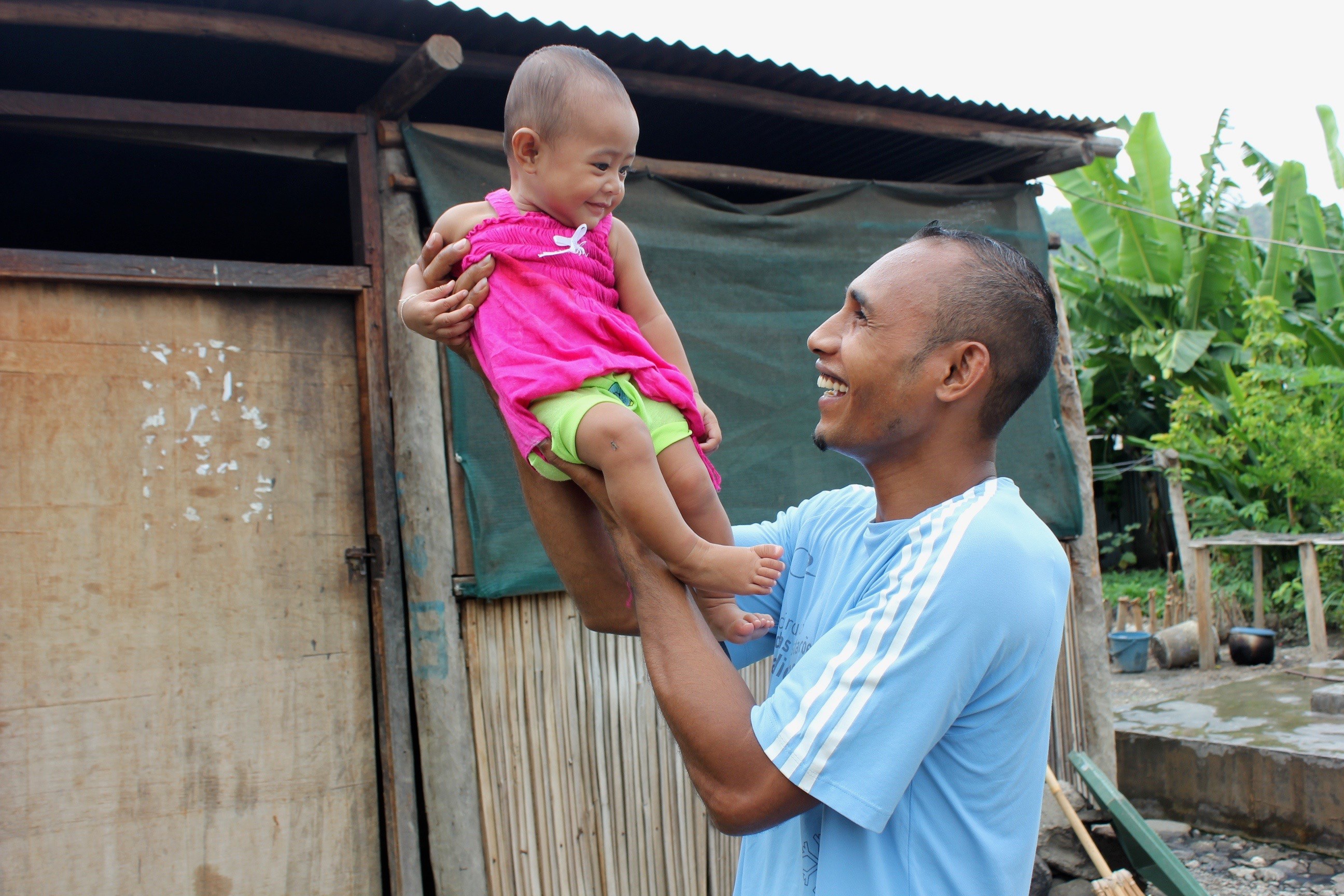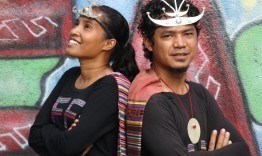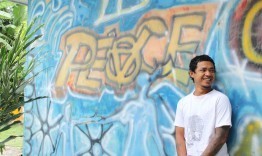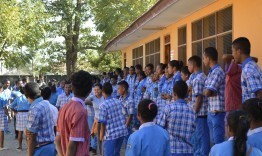
Promoting Responsible Parenting
Technical Assistance to Design and Pilot a Parenting Programme – Phase II
“Strengthening Families” is a holistic parenting education and support programme designed by NGO Ba Futuru and Rain Barrel Communications in collaboration with the Democratic Republic of Timor-Leste’s Ministry of Social Solidarity and supported by the United Nations Children’s Fund (UNICEF). The purpose of the programme is to contribute to improved developmental outcomes for children and youth in Timor-Leste, which has one of the youngest populations in the world. The design and piloting of the programme took place from June 2015 to May 2016, with the following key tasks:
- designing and finalising a parenting programme;
- supporting the pilot of quarterly parenting education sessions at the community level;
- a baseline survey of knowledge, attitudes and practices (KAP) conducted in 2015;
- supporting information, education and communication (IEC) material;
- design of a follow-up support framework, including home visits and peer support groups;
- a monitoring and evaluation (M&E) framework.
The findings of the KAP survey informed the design of the parenting programme including the parenting education sessions, the supporting IEC material, suggested communication activities and the follow-up support framework. The programme promotes a Communication for Development (C4D) approach and is supported by a robust M&E framework to ensure changes in parenting practices can be monitored, measured and attributed to the programme intervention.
This parenting programme aims to empower and generate behaviour change amongst parents and caregivers to support improved developmental outcomes for disadvantaged children in Timor-Leste. The programme was developed as a result of combining analysis of the situation in Timor-Leste, including the cultural context, and Government goals and international best practice.
The Situation Analysis of Children in Timor-Leste (2014) highlights several challenges faced by children. These include undernourishment; low preschool enrolment and school retention; high prevalence of violence against children; teenage pregnancy and child marriage, and widespread exposure to alcohol and substance abuse. A key aspect of improving developmental outcomes for vulnerable children and adolescents, especially in relation to early childhood development, is engaging with parents and other caregivers who are primarily responsible for their growth and personal development.[1] This is critical in Timor-Leste, where the average woman bears five or more children[2] and close to 43 per cent of the population is younger than 15 years old.[3]
Britto and Engle’s (2013) comprehensive review states: “…the multi-disciplinary and international literature on parenting clearly indicates that parents are one of the most influential factors in children’s development.” However, parents and caregivers of high-risk families in Timor-Leste face a myriad of challenges. They need better understanding of early childhood development and their critical role during this phase of life; reinforcement of positive behaviours they already use; and information and skills to support new behaviours to meet the holistic needs of their children. The ten key focus areas are the following:
- General Parenting: Every child needs unconditional love, verbal and physical affection, emotional security and sensitivity to his or her needs and feelings.
- Early Stimulation: Interact with your child in utero and from the time they are born through games and play, songs, rhymes, stories and reading.
- Child Protection: Ensure children are cared for and supervised by an adult or a child older than 10 years old and protect your child from physical violence and all forms of abuse.
- Alternative Discipline: Use positive discipline approaches with your child to resolve conflict or redirect misbehaviour.
- Nutrition: Feed your young child (from 6 -23 months) daily nutritious foods such as egg, liver, chicken, meat, mung bean or kidney beans.
- Hygiene: Wash your hands with soap and water at important times such as before eating, before feeding young children, before cooking, after using the toilet, after cleaning baby’s bottom and after touching dirty things. Stop defecating in the open.
- Birth Registration: Register your child immediately after birth.
- Danger Signs and Care Seeking: Take your child immediately to a health facility if they are showing signs of serious illness.
- Education for All: Send your child to school from an early age, keep involved in your child’s learning and provide support with their homework.
- Youth Issues: Talk to your adolescent children about issues related to bodily changes and sex and sexuality in order to prepare them for the future.
International best practice shows that new knowledge is better processed through dialogue, or two-way communication (so that people can talk about it and consider how it relates to daily life), and that key messages are best delivered through multiple channels so the same information is received in various ways.
The Ministry of Social Solidarity (MSS) has identified parenting education and support as a promising modality to mitigate these challenges, with a newly-articulated theory of change that envisions positive behaviour change amongst parents and caregivers in vulnerable households.
Given these factors, the Parenting Programme is a holistic, integrated and nationally-delivered programme working at three levels, including a communication campaign at the national level, parenting education sessions at the community level, and follow-up home visits and peer-to-peer support interventions. The Parenting Programme approach combines delivery of new information and skills with generating dialogue (two-way communication) to enable community-based problem solving and community-led, local solutions. This approach aims to enable parents to: a) understand their critical role in their children’s development; b) build on the things they currently do that enhance this development; c) learn new information and skills; d) practice new approaches with community outreach workers; e) solve common parenting problems and create locally relevant solutions, and f) be supported in adopting new techniques and behaviours that will improve developmental outcomes for children.
This is a multi-disciplinary approach where specialists from various areas (i.e., health, education, protection, WASH, nutrition and agriculture) work together at the community level on the same key messaging, with reinforcement by a local-to-mid-level communication campaign and follow-up support via existing aldeia-level networks. A ‘Family Support Team’ at the suco level supports a total of 10 key behaviour impact messages that show the importance and inter-relatedness of all sectors in achieving improved development outcomes for the most disadvantaged children in Timor-Leste.
The proposed approach, driven by Communication for Development (C4D) principles and best practices, provides parents and caregivers with new information and skills through quarterly parenting education sessions at community level, which also provides a platform for parents to discuss and come up with local solutions. These sessions should be led by a community-based team comprised of respected and effective community workers. Each team decides how to deliver each message and organize the parenting education sessions at community level once every three months. They also determine the best ways to promote the key messages through various channels in their community, such as the local health post, preschool and other education facilities, faith-based activities and any private groups (i.e., led by local non-governmental organisations [NGOs], international non-governmental organisations [INGOs] and development partners). A national to mid and local-level media communication campaign should be used to reinforce messaging through a weekly radio show, listening groups, guided theatre for young people, billboards, posters and word-of-mouth communication.
[1] Britto, P.R., & Engle, P. (2013, unpublished). Parenting education and support: Maximizing the most critical enabling environment. New York: UNICEF.
[2] “Fertility Rate; Total Births per Woman in Timor-Leste (2012). “http://www.tradingeconomics.com/timor-leste/fertility-rate-total-births-per-woman-wb-data.html [4 April 2013].
[3] United Nations Development Programme 2011, Timor-Leste Human Development Report 2011: Managing Natural Resources for Human Development.
Similar Projects
Educating, Inspiring and Creating Change through the arts
Programa DAME: Drama, Artes, Media no Edukasaun / DAME Program: Drama, Arts, Media and Education.
Creating a Pathway to Ending Domestic and Gender-Based Violence
Dalan ba Justisa/Pathway to Justice Program
Changing the Lives of Vulnerable Children
Inisiativa Dezenvolvimentu Ba Labarik / The Early Childhood Development Initiative
Creating Quality Learning Environments for Young People
Challenge
Most children in Timor-Leste do not have access quality non-violent education which hinders their social and economic advancement. With your support Ba Futuru, a local NGO, can bring quality education to many more young people.
Solution
Ba Futuru has been carrying out transformative work with teachers and school management committees. This work has turned many high need schools into quality learning environments. Our aim is to create happy, supportive, and safe school environments so that the young people would be able to develop the skills, knowledge and confidence they need to create positive futures for themselves and their communities.
We encourage new styles of teaching rather than traditional rote models, enhanced in-school relationships, improved infrastructure, created better learning environments and reduced violence. Our work encourages teachers to stop using violent discipline and to replace this with positive classroom management strategies.
After Ba Futuru worked with their schools for 9 months, the students reported that their teachers made a good progress in their teaching methods. “Before hand, the majority of the teachers asked students to write or copy from the board without any explanation. But now they changed their teaching methods. They are using participatory methods such as asking comprehension questions, using group work, doing energizer activities, using games and explaining about the subject matter.”
A student representative from the School Management Committee of one target school reported: “From my point of view, the teachers have changed after they attended the training from Ba Futuru. Compared to previously when students were being punished, even bitten when they make a mistake in class or come to the school late. Some teachers just asked us to copy from the board without providing any clear explanations. Those that practice the new methods provide us with good explanations and it makes it easier to understand. And sometimes when we are getting bored, the teachers utilize games. I have also noticed that there is less physical punishment. I propose that Ba Futuru continue with the training of our teachers so they can improve their teaching methods.”
Long-Term Impact
Sustainability of outcomes has been enhanced through Ba Futuru’s the teacher training toolkit and the fact that the Ministry of Education, as well as target school administrators, teachers and teacher trainers can utilize the toolkit into the future. Films on each training module have been created so they can be shared widely with teachers that do not have access to in-person training.
- 10,000s of students are benefiting from Ba Futuru various educational programs that have trained 1,000s of teachers, from early childhood to University level
- 100s of children have received scholarships helping them gain the items they need for going to school
Help transform the learning environments of the young people of Timor-Leste




